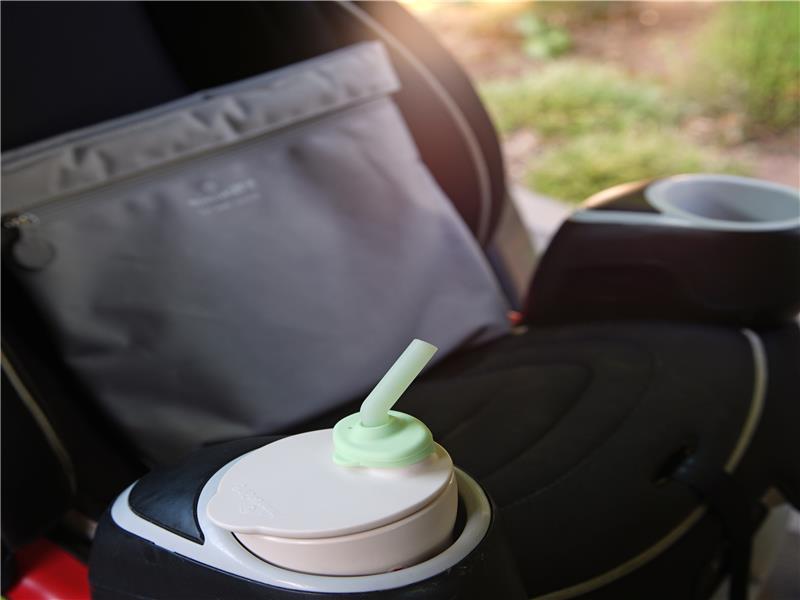Guest Blogger: Unplugged Travel with Toddlers - Road Trip Edition
/Summer is here and for many families that means road trip season!
While watching movies or playing tablet games can be fine for some, many strived to focus on unplugged travel with their little ones. By working with your child’s natural cycles, you can turn a device-free road trip into engaging, quality, family time and provide a childhood full of treasured memories instead of just another viewing of Frozen.
Don’t rush.
As adults, we usually plan a long-haul drive trying to get to our destination as soon as possible, but we have to change this mindset when traveling with kids. Planning is key when it comes to road trips with toddlers. Kids have three main cycles; eat, sleep and play. The length of these cycles varies by age, but for infants and toddlers, the time in between can be quite short. Plan to stop approximately every two hours to stretch everyone’s legs, enjoy a snack and a bathroom break, especially important for toddlers in potty-training! Frequent breaks and taking your time will ease the stress of your child having their normal routine disrupted and help them enjoy the experience more. Try to end your day at 4 pm so that your child can eat dinner at their normal time and maintain their bedtime schedule. You can’t expect them to fall asleep right after checking into a hotel!
Pack accordingly.
Depending on the length of your road trip, it’s important to prepare for the unexpected. For short trips (under 3 hours), snacks, water, wipes and extra clothing/diapers are a must. For longer trips, several changes of clothing may be necessary along with extra wipes. Don’t forget a leak-proof storage bag for dirty clothing! Motion sickness can be unpredictable, so a few sick bags may also be in order. A thermos of warm milk is a surefire way to get toddlers to fall asleep once the car gets moving! Get a full packing checklist here!
Anticipate their needs.
Place a bag or other container that your toddler can reach next to their car seat and fill it with all the things they may want or need. Healthy, car-friendly snacks like sliced fruit or cheese (think non-crumbly) and water to keep them hydrated are important. Favorite sleeping comforts such as blankets or soft toys along with the white noise of the car is enough to put most toddlers to sleep. Coloring books or picture books with few words are a good choice for the car as reading will often lead to motion sickness. Audio books are something the entire family can enjoy. Charlotte’s Web, Stuart Little, Frog and Toad are Friends, Matilda, Charlie and the Chocolate Factory and The Wonderful Wizard of Oz are toddler-approved (over 4 years old) and enjoyable for all!
Make the most of play time.
While many parents aim to drive when their kids are sleeping, playtime in the car helps kids stick with their regular daytime schedule much better. Here are some activities you can do with your kids while still keeping your eyes on the road.
What would a road trip be without sing-alongs and car games? When your toddler is at their most active, it’s a great time to engage with them and build those road-trip memories! Make a couple of playlists in advance, especially if your child enjoys calming music before bed or naptime. Fill another with road trip classics and your toddler’s favorite dance music for a robust sing-along and in-your-seat dance party! It’s a great time to teach your kids the songs you sang at camp or in the car as kids and relive a little of your own childhood too.
Age-appropriate road trip games can be fun for kids of all ages. Simple scavenger hunts such as car colors for young kids and state license plates for older ones or a game of I Spy are good diversions. The Alphabet Game is great for toddlers, either spotting items outside the car that begin with each letter or through a scenario such as “I’m going on a picnic, I bring…” something beginning with A and so on. Twenty Questions is another classic your toddler will enjoy!
There are a lot of benefits of unplugged travel with toddlers, including building memories. Skip the DVDs and tablet time and help your kids be present. Also, work with their schedule to make naptime work for you. What are your best tips for road trips with toddlers? Let us know in the comments below!
-Compiled by Miniware
##
Would you like to be a guest blogger of aMommyCast.com? Send your entries to aMommyCast@gmail.com




